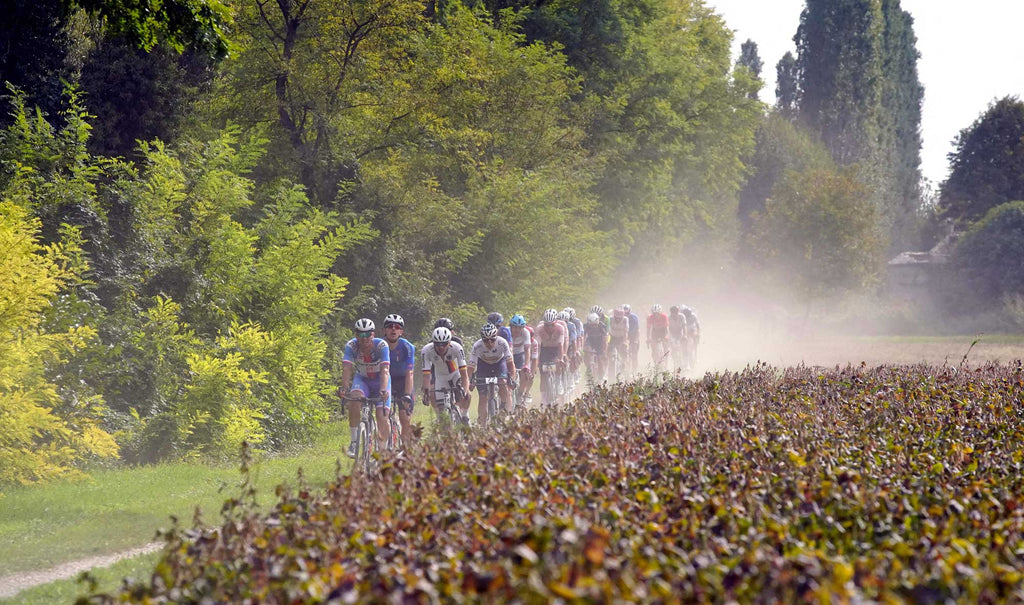There was a time when gravel racing and professional road racing could not have sat further apart. A time when there was even a blurred boundary in the gravel sphere about if events could be classified as a race at all. Some people raced them, some people just rode them. It wasn’t really about the podium or the fastest finisher, it was about experience, traversing amazing – sometimes challenging – terrain to the best of your ability and the finishing position was secondary. The atmosphere before and after events was festival-like, it was fun first, racing after.
It’s not surprising, then, that what the UCI (cycling’s world governing body) represents, doesn’t quite align with gravel racing’s original ethos. Really, the UCI is the very opposite, it circulates rules, regulations and restrictions on racing, issuing fines and bans for those who break the rules, arguably creating barriers to entry for those who don’t have the financial means or connections to break into the professional racing ranks. This couldn’t be further from the inclusive, friendly nature that gravel racing originated from.
See some of the world’s best gravel bikes at Rouleur Live – get your tickets here
When the UCI began to get involved in gravel racing, after seeing it was a growing market and discipline, inevitable friction arose. It started with the UCI Gravel World Series: 11 races which served as qualifying events for the inaugural UCI Gravel World Championships that took place last weekend. The top 25% in each category in each of these events qualified for the World Championships, then each nation was also given a quota of 20 spots to allocate to ‘wildcard’ riders from their respective countries.
Some long term gravel racers opted to boycott these UCI sponsored events, wary of the reputation that governing bodies have of taking away the essence of what makes a discipline unique. Highlands Gravel Classic was the first of two US-based gravel world championships qualifiers and it had a shockingly low turnout. When the UCI Gravel World Championships was announced, people argued that there was already a Gravel Worlds race in Lincoln, Nebraska – one which attracts over 500 participants and is in its 11th year. There was a distinct lack of US gravel talent on the start line at the UCI World Championships in Italy last weekend, despite this being the country where the discipline has flourished the most.
So, do these riders have a point? Was the…

